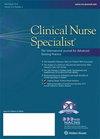质量改进和临床审核:什么是道德监督?
IF 0.9
4区 医学
Q3 NURSING
引用次数: 0
摘要
本文章由计算机程序翻译,如有差异,请以英文原文为准。
Quality Improvement and Clinical Audits: What Is the Ethical Oversight?
INTRODUCTION Quality improvement (QI) is described by the Agency for Healthcare Research and Quality as the process to test, understand, and revise processes constantly to improve the way care is delivered to patients. A high-reliability healthcare organization (HRO) is one that participates in QI and clinical audits as part of standard work. To achieve this, real and potential threats to reliability are solved quickly through both cognitive and behavioral standards used every time. Patient outcomes including reduction in patient harm, empowering patient decision-making, and improving health equity and delivery of services are enhanced through ongoing QI initiatives. Quality improvement has often been described as existing in a zone between clinical practice and health research. There is confusion of what constitutes the foundations of QI and what is required in terms of ethical oversight and by whom. There is limited international collaboration to achieve consensus on what ethical oversight or frameworks should apply to QI initiatives. A systematic qualitative review exploring the ethical issues in a learning healthcare system revealed the following:
求助全文
通过发布文献求助,成功后即可免费获取论文全文。
去求助
来源期刊
CiteScore
1.50
自引率
16.70%
发文量
83
审稿时长
>12 weeks
期刊介绍:
The purpose of Clinical Nurse Specialist™: The International Journal for Advanced Nursing Practice is to disseminate outcomes of clinical nurse specialist practice, to foster continued development o fthe clinical nurse specialist role, and to highlight clinical nurse specialist contributions to advancing nursing practice and health policy globally. Objectives of the journal are: 1. Disseminate knowledge about clinical nurse specialist competencies and the education and regulation of practice; 2. Communicate outcomes of clinical nurse specialist practice on quality, safety, and cost of nursing and health services across the continuum of care; 3. Promote evidence-based practice and innovation in the transformation of nursing and health policy for the betterment of the public welfare; 4. Foster intra-professional and interdisciplinary dialogue addressing nursing and health services for specialty populations in diverse care settings adn cultures.

 求助内容:
求助内容: 应助结果提醒方式:
应助结果提醒方式:


